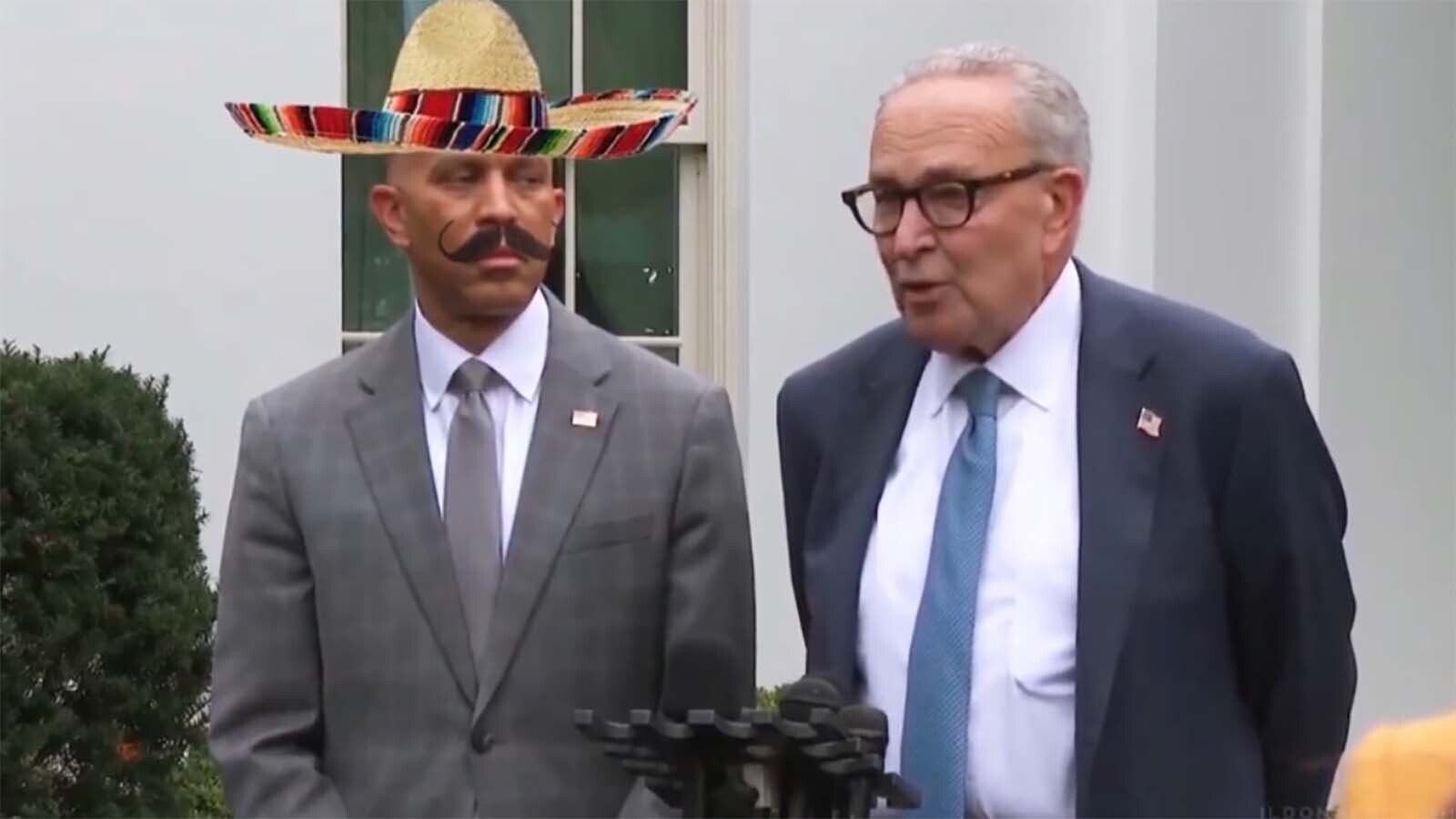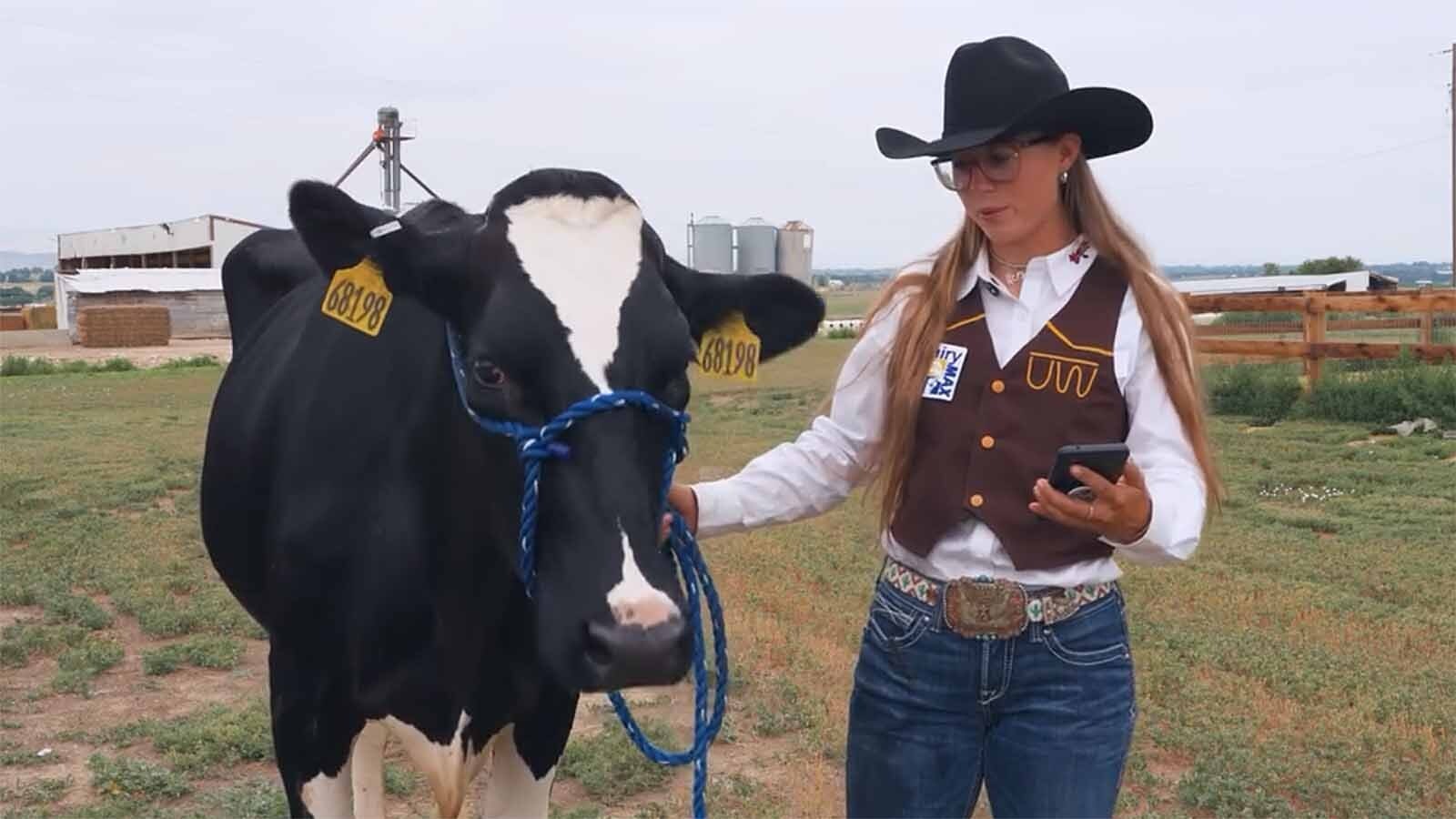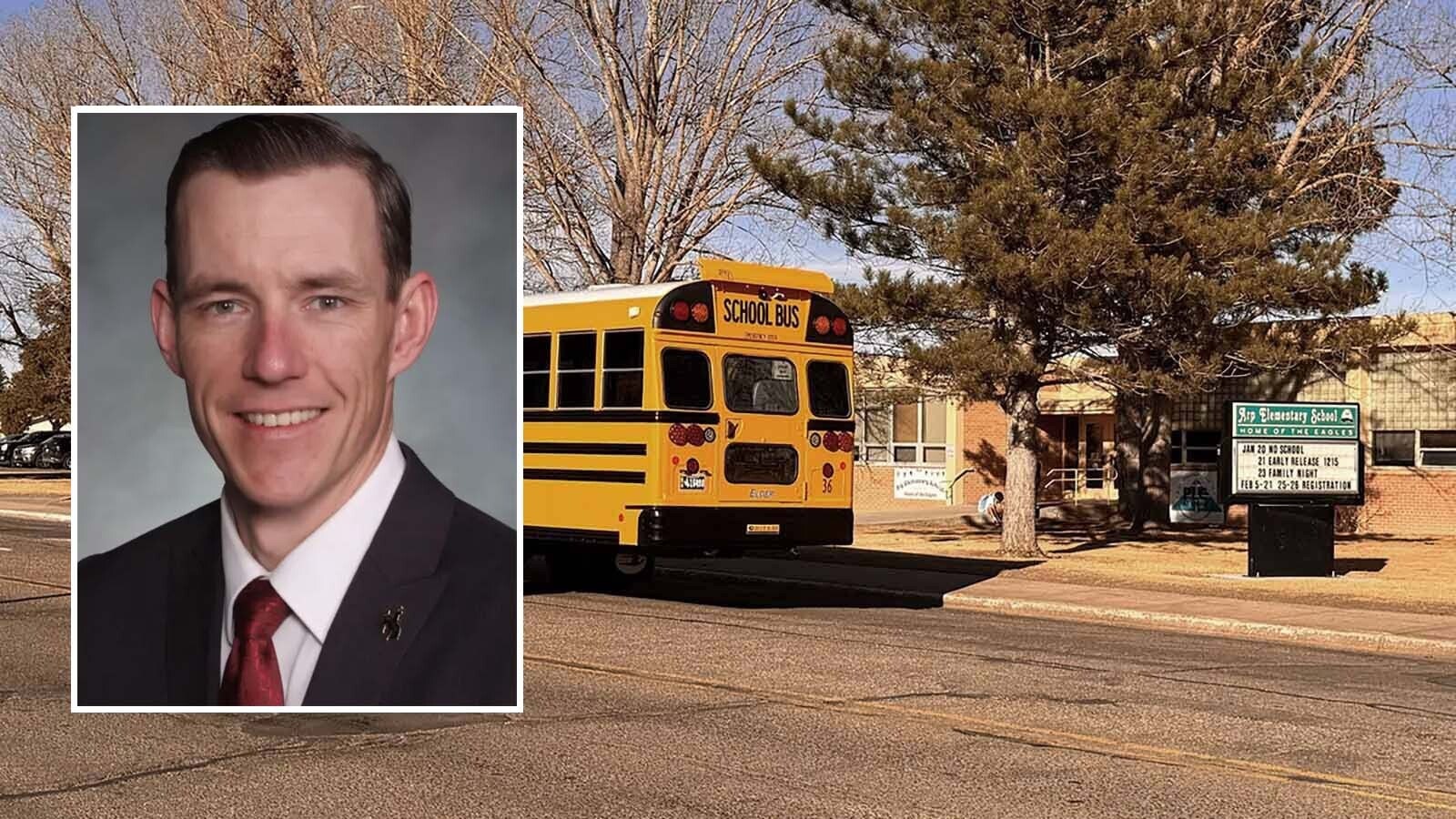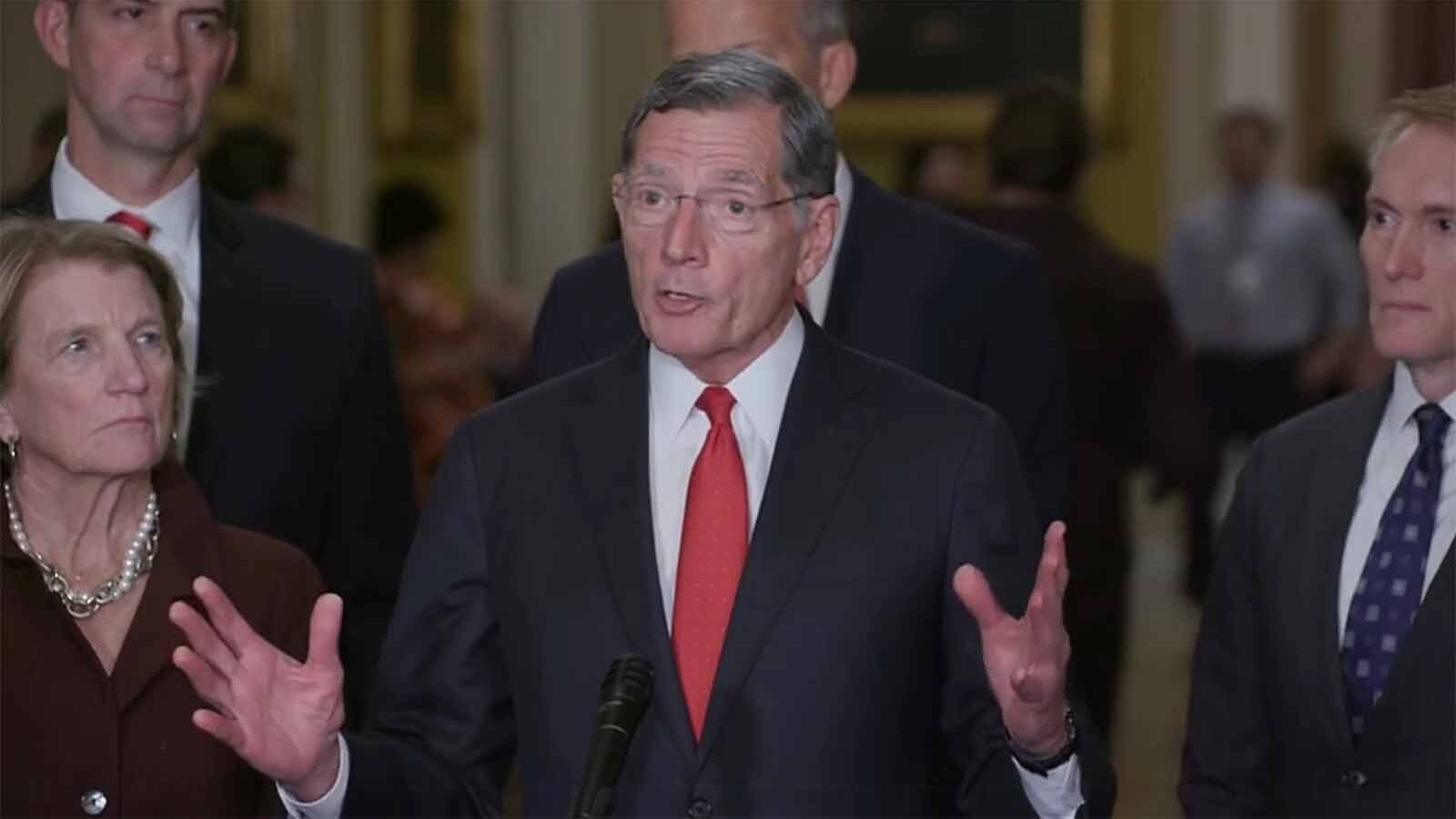Across Wyoming, many local governments are voicing discontent over the steep property tax cuts the Legislature passed earlier this year and say they're finding it difficult to maintain services.
At the same time, those who support the tax cuts say they force governments to be frugal, live within their means and cut the fat from their budgets.
Former Laramie County GOP Chair Khale Lenhart has been one of the voices for local governments trying to make up for the shortfall.
Gov. Mark Gordon in March signed Senate File 69, which creates a permanent 25% property tax exemption for the first $1 million of the value of a single-family home.
The final bill did not include a provision to reimburse local jurisdictions for the lost revenue, a point of extended debate during the legislative session.
As a result, Lenhart argues that small Wyoming counties and towns are being forced to choose between crucial government services as they scramble to pick up the slack.
He is now fighting to bring awareness to the issue as legislators consider raising the tax cut as high as 50%.
Small Towns, Big Cuts
Seventy percent of property taxes fund public schools, and the rest fund local governments.
Wyoming’s smallest jurisdictions, Lenhart said, are therefore bearing the brunt of the Legislature’s cuts as their small budgets become tighter. Lenhart said this could lead local governments to make difficult decisions as they decide which services to offer.
“These small communities are going to have problems providing the same level of government function that you had before,” Lenhart told Cowboy State Daily.
The town of Guernsey, for example, gets all its revenue from residential property taxes. While the town is likely in need of a new water and sewer system, Lenhart said, the tax cuts make this impossible.
“I don’t see any way Guernsey continues to be a habitable place without going to the state Legislature for other funding,” he said.
To recoup the property tax shortfall, Lenhart said the state could consider increasing sales tax, but the amount required would be “astronomical.”
Lenhart also argued that reinstating a state income tax could be another way to overcome revenue shortages.
“If you’re saying, ‘We’re cutting property taxes and you need to raise money elsewhere,' there’s only so many options, and that’s one of them,” he said. “That’s part of why I don’t think it makes a lot of sense to say, ‘Let’s save everyone a few hundred bucks on property taxes but be forced into instituting a state income tax later.’
"I think that’s a step backwards. Using an axe, rather than a scalpel here, has the potential to do a lot more harm than good."

Delayed Impact
When Gordon signed SF 69, he indicated that he did so on behalf of tax-weary residents. It was a tax break the people of Wyoming wanted.
But he also alluded to the fact that it would be up to local governments to make up the difference.
“I have always supported tax accountability, and this bill provides tax relief without transferring the burden to our core energy industry,” Gordon said in a statement. “This act, coupled with the bills I signed last year, responds to the call for property tax relief.
"Now the practical impacts of this legislation will need to be navigated by our cities, counties, special districts and citizens.”
Former state House Speaker Tom Lubnau told Cowboy State Daily the full extent of the property tax impacts won’t be known until it is much too late.
“There is a time lag in the revenue, because most communities are operating off of last year’s tax schedules,” he wrote via email. “The new tax cuts did not occur until this summer, so the real effects will accumulate and be felt more next year. We are only seeing the beginning.”
Lubnau also pointed toward a potential state income tax but warned such a solution would prove highly unpopular.
“While I find that suggesting an income tax (is) disgusting, the approach to curry favor with the voters is ultimately going to end up creating a state income tax,” he said.
“Despite what the proponents of the tax cuts claim as political slogans, Wyoming government has generally operated frugally for many years,” he added. “No significant fat can be cut from the budget to pay for the tax cuts.”
County Impacts
Laramie County Commissioner Gunner Malm told Cowboy State Daily he is seeing the impact of the tax cut in other counties across the state.
“You see Big Horn County had to cut a bunch of stuff from various departments from their emergency management to their library,” he said. “You saw Hot Springs County have to reduce their commitment to 4-H education, which is a huge part of Wyoming’s culture and legacy.”
Malm also pointed to the fact that Wyoming is growing in population but is not growing its revenue accordingly. This, he said, can contribute to areas throughout the state that are not properly policed due to a shortage of law enforcement officers.
Other emergency services, such as ambulances, are also feeling the impact of the reduction in revenue, Malm said. This is forcing emergency services from small towns to stretch their service areas, which could potentially cause increased wait times.
Malm also addressed concerns that high property taxes could lead homeowners to lose their houses. Laramie County, he said, has never removed anyone from their homes for delinquent property taxes.
“I don’t think the vast majority of Wyomingites that I speak to are unhappy with their property taxes and what they get for them,” Malm said. “They understand that the taxes they pay in, in comparison to the services they receive, are greatly weighted in favor of services received.”
Where’s The Fat?
While state legislators in favor of the cuts argue Wyoming’s local and county governments have become too bloated with tax dollars, Malm said he has repeatedly offered them the opportunity to audit Laramie County’s budget.
“We said, ‘Come and sit down with us and show us in our budget what you think is bloat and what you think we could,’ and not a single one of them was interested in doing that,” he said.
Weston County Assessor Kara Lenardson told Cowboy State Daily her county has also felt an impact.
“The certified 2025 county assessed valuation is $172,438,668,” she wrote via email. “It is down approximately 11.4% from last year's $194,517,316.”
This evaluation, she said, is made up of local and state components.
“From last year to this year, our local assessed was down approximately 14.1% and our state assessed was down approximately 8.3%.”
After implementing the state’s tax exemptions, Lenardson said Weston County lost roughly $1,362,300.

Local Impacts
Nate Martin, executive director of advocacy group Better Wyoming, expressed concern with the local impacts of property tax cuts.
“You’re taking already tight budgets and just squeezing them even further,” Martin told Cowboy State Daily.
Lawmakers may be forced to institute other painful taxes, such as a grocery tax, to make up for the shortfall, he said.
“These things aren’t free, you know,” he said of critical government services like emergency medical. “We have to have a tax base, so if you start cutting property taxes, or even abolishing property taxes, you’re going to have to see some of these other things.
“I don’t think the people of Wyoming want a grocery tax."
Cheyenne City Councilman Mark Rinne told Cowboy State Daily even the capital city is feeling the impacts of the lost tax revenue.
He estimated the city took a $1.5 million hit to its budget after implementing the tax exemption, which could rise as high as $1.8 million.
He said a potential 50% cut that will be on the 2026 ballot would make matters much worse.
“We’ve managed to absorb those somewhat this year,” he said. “If the amendment to the Constitution that reduces it by 50% passes, it’ll probably double that impact, somewhere between $3 million to $3.6 million impact on our budget.”
If this were to happen, Rinne said, Cheyenne would continue to prioritize emergency services such as fire and medical. Residents would begin to feel the cuts in places like public parks and other city property.
“The city is growing in land size, not just population size,” Rinne said. “The $3.5 million dollars would probably allow us to hire either 15 firefighters or 15 police officers. As we expand in area and size we gotta add coverage for fire and police.”
Lubnau also noted the severe impact a 50% cut could pose to small towns, telling Cowboy State Daily critical services would become unreachable.
“If the Legislature does not figure out funding mechanisms, or reallocate funds from other sources, you will see hospital closures, termination of services like parks, libraries, limited police and fire responses, reduced snow plowing and deferred maintenance of streets and roads,” Lubnau said.
To implement a deeper cut, even one as large as 33%, would require substantial work from state leaders, Lubnau added.
“To do so, they would need to cut $2 billion dollars of government expenditures, which would mean huge cuts in education, health care, highways, prisons, law enforcement, fire and other essential government services,” he wrote.
“The ripple effect throughout the state would be traumatic to say the least."
Busting Budget Bloat
State Sen. Troy McKeown, R- Gillette, who co-chairs the Legislature’s interim Joint Revenue Committee, told Cowboy State Daily he was a key supporter of the bill to cut property taxes and is continuing to search for ways to eliminate residential property tax altogether.
McKeown said such a step is necessary because many of the state’s larger jurisdictions would see budget adjustments of around 1% or less while returning money back to the people of Wyoming.
“It’s such a minute cut, it’s not even funny,” he said.
The tax cuts came at a time when many cities are seeing increasing revenue in other areas, he said.
Wyoming property taxes, he added, had also increased significantly over the past five years while also being impacted by national inflation.
Even smaller towns, the senator argued, “aren’t upset” with the property tax cuts and that the pushback from figures such as Lenhart is being blown out of proportion.
In “some to most cases,” McKeown continued, much of the lost money is coming out of severely bloated budget areas which have long been in need to trimming. Wyoming’s government had grown to an untenable size prior to the cuts.
While he stopped short of calling it wasteful, the senator called Wyoming’s government “extravagant.”
“It means older people aren’t losing their houses,” McKeown said of the impacts of his tax cuts. “There were people who were worried about paying [the taxes]. They were choosing food over property taxes.”
When posed with the idea of potentially implementing a state income tax, the chairman said the odds of that happening in Wyoming are slim to none.
“That won’t get out of my committee,” he said. “It really comes down to a question: are my constituents more important than government?”
He said the answer to that is, "a resounding ‘hell yes.’"
During the state Senate floor debate on the cuts earlier this year, some lawmakers worried aloud that if they didn't enact the reduction, Wyomingites would draft and pass a ballot measure to do it themselves - and more drastically.
That was after proposed ballot measures circulated.
The voters also passed a 2024 ballot measure to change the Wyoming Constitution so that residential property taxes would have their own unique category. The legislature had advanced that to the ballot via a 2023 resolution.
Sen. Charlie Scott, R-Casper, articulated the concern from the Senate floor in January. He said his constituents — especially elderly people and younger families — had been clamoring for the reduction.
“I’m afraid if we don’t do this, come the 2026 election, we’ll see it imposed on us from the outside without the limitation on the large expensive homes, so it would reach the large expensive homes that are owned by people who don’t need this kind of exemption,” said Scott. “This makes this a real alternative to that, that would satisfy the needs, satisfy it early; reach the people that would be helped by it.”
Jackson Walker can be reached at walker@cowboystatedaily.com.





